Honey Boy (2019) was directed by Alma Har’el and written by Shia LaBeouf, who also co-stars in the film. LaBeouf wrote the autobiographical script as part of a rehabilitation program, and portrays his own abusive father in the film. Noah Jupe and Lucas Hedges also star as Shia (here named “Otis”) at different points in his upbringing. Does the film stand on its own merit, or is it merely a nice cathartic story for the beleaguered LaBeouf?
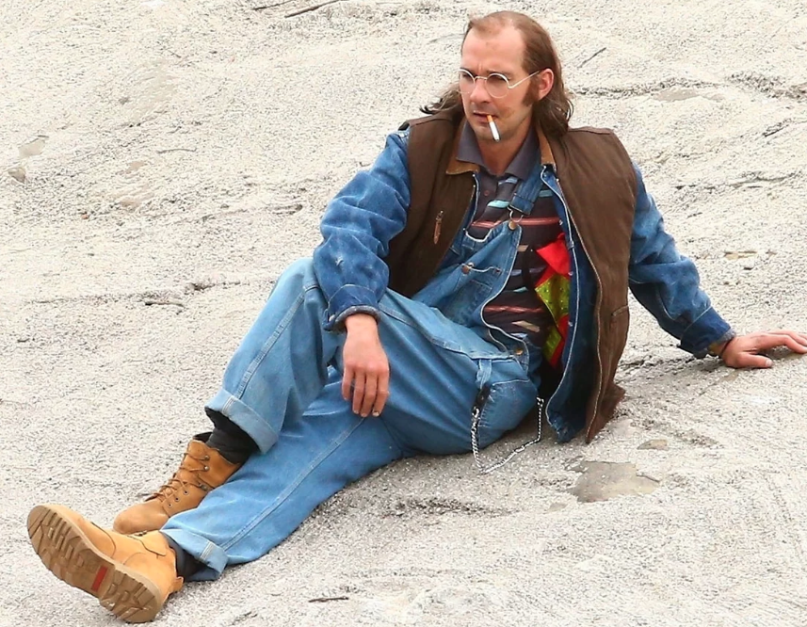
I feel like many people have forgotten just how good of an actor Shia LaBeouf was. His recent return to prestige cinema had me nostalgic and looking back at his body of work, and boy was he a talent from the moment he first appeared on screen. From his breakout childhood roles in Even Stevens and Holes, to his young-adult star turn in Transformers and Indiana Jones spin-offs, to his more mature modern-day choices like Nymphomaniac and American Honey. He always slays it, and it kills me now to know what the industry (and his personal life) did to him that caused him such pain. Is it worth it for someone to go through what he went through for the benefit of us, the audience, enjoying his work? If him leaving the industry forever was what it took for him to be happy, I would be disappointed, but I couldn’t begrudge him for that decision because we all deserve to find our inner peace. Which is why I’m so glad he was able to partially come to terms with his past with Honey Boy, a fascinating, cathartic memory piece that is unlike anything I have seen this year.
LaBeouf is known for his forays into performance art over the past decade, and truthfully, this feels more like that than a traditional film. Sure, there is a loose plot and some conventional cinematic techniques, but this is clearly a film designed for one man to get a lot of shit off his chest. It’s a movie about its own making, as we see Otis’s process in therapy of coming to terms with his PTSD and repressed feelings of his dad, then starting the process of writing the very film we are watching. This is an autobiographical film in the truest sense: letting us in on the inner workings of art itself, of the process that Otis (and by proxy, Shia) goes through when pursuing a craft. He muses not only on writing about past pains, but the very act of acting that causes him such pain for the enjoyment of others. He considers it “easy” to convey emotions of pain – anger, crying, rage – but the quieter acts, those of fitting in and being “normal”, are the most difficult acts for him to put on. Because that’s how Otis viewed the world for such a long time: an act we must perform for others to protect ourselves from harm.
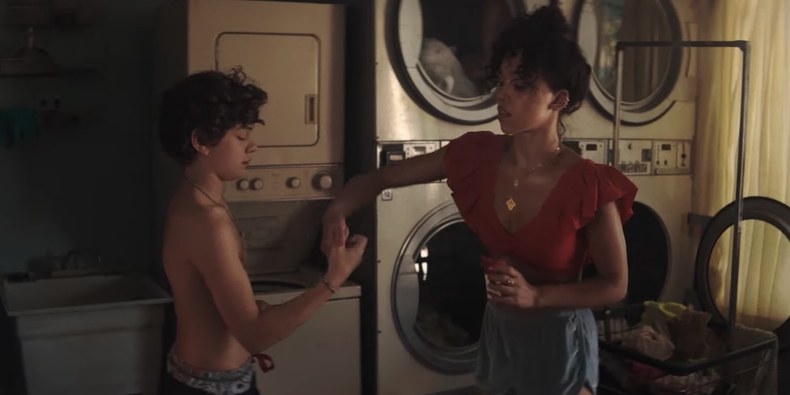
Much ado has also been made of LaBeouf’s decision to play his own father in the film, and I had some trepidations going in, but I really love what he did with the role. Naturally, only he could have portrayed the man as accurately as possible without it coming across as caricature, and he does feel like a real person. But what makes this performance so special is how LaBeouf does not make him a villain; sure, the man acts detestably, but this whole film reads as an attempt to understand this man on a deeper level than LaBeouf ever had before. We understand his dad’s bitterness at being an employee of his own son, of the entrapment he feels in life, and the resulting insecurity issues and lashing out at his son because of it. We don’t agree with the way he treats Otis of course, but we at least understand the reasoning behind his abrasive behavior. Shia plays the part with such heart, as if he felt he owed it to his dad to treat him fairly and flesh him out fully as a person with his own wants and needs in life.
There really isn’t a plot to Honey Boy; it’s just a series of moments between young Otis and his dad, intercut with older Otis grappling with these memories. That might frustrate some viewers, and I found myself tapping my toes at times waiting for something meaningful to transpire, but it nonetheless paints a vivid portrait of Otis’s childhood. Including older Otis in the narrative helps to give structure to these vignettes, as we understand the impact that they had on him in the present-day and his attempts to look back at them without reliving all the hurt and heartbreak. It reminded me very much of Almodovar’s Pain and Glory in the way it looks at an artist trying to come to terms with a painful past. It also bears passing similarities to Roma, but rather than meticulously reconstruct a time period like Cuaron does, LaBeouf aims to recreate the emotion so that we live it like he did. It obviously isn’t as good as either auteur masterpiece, but it shares the same powerful emotional heart of both films that comes from really delving deep into your own life and opening others up to it.
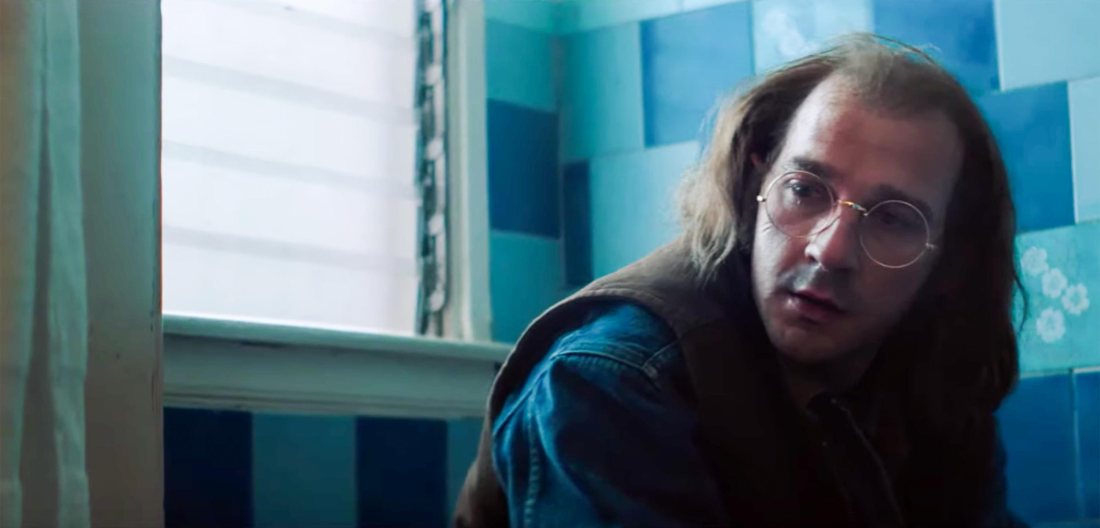
One of the more interesting character interactions in the film is that between young Otis and the young woman living in the same apartment complex whom he befriends. I was a bit confused at first with the direction their relationship seemed to be going, and after THAT awkward scene in Jonah Hill’s Mid90s last year I was very concerned. But it thankfully winds up not being a sexual encounter at all, and furthermore sheds a lot of light on the socialization problems Otis would go on to have later in life. A heartbreaking moment comes when Otis interrupts a cuddling session with the girl to present her with a wad of cash. His atypical relationship with his dad has conditioned him to believe that people will only show you affection if you give them money…a heartbreaking realization. It also demonstrates how unprepared he is for normal human interaction…the awkwardness of their encounters shows just how difficult it is (and will be) to form normal, trusting relationships with others…friends and lovers alike.
Young Otis’s interactions with others in his life are especially effective when juxtaposed with older Otis’s troubles. It’s saddening to see this young kid, so desperate for attention and love, to have turned into a young man so standoffish and closed-off to the world and those around him. He is unable to trust anyone after having his faith broken by his father and others, by the belief that nobody wants to be around him unless they stand to benefit from him somehow. The breaking point comes in the climactic argument scene between young Otis and his dad, the one the film has been building up and alluding to with snippets of audio and apparent nightmares for older Otis. It’s the moment young Otis realizes he is truly alone, that he cannot have a normal life thanks to his profession, that his father is a deeply flawed man and a poor role model. From that moment on it’s up to older Otis to decide what to do with this information: does he let it eat away at him and continue to send him down the bad path of self-destruction, or try to make the best of a bad situation and move on?
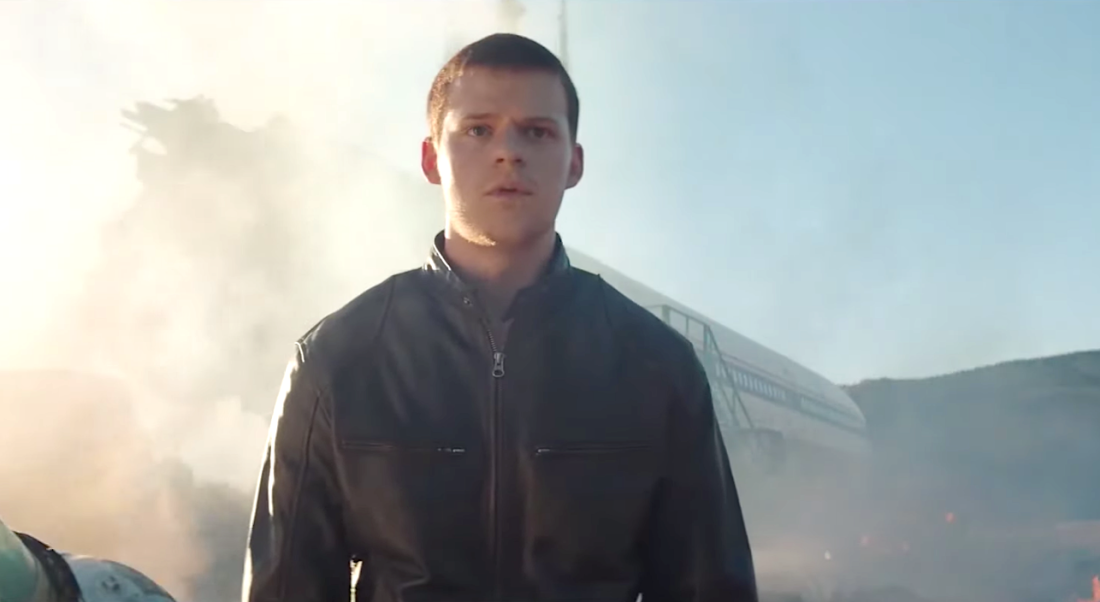
My only real problem with the film (despite the nonexistent plot) is Alma Har’el’s direction and Natasha Braier’s cinematography. There are so many shots that are displeasing to the eye thanks to erratic framing, poor lighting or out-of-focus faces. This is Har’el’s feature film debut, and it sadly shows; while she gets a lot of things right, the visuals leave a lot to be desired. Luckily, such problems didn’t derail the film, and both ladies get most things right. To conclude I’ll discuss the acting; I already discussed why LaBeouf’s performance is so terrific, but goddamn were Lucas Hedges and Noah Jupe incredible in this film. Hedges similarly wowed me in Waves and continues to prove why he’s the most talented young man in Hollywood (move aside, Chalamet!). Noah Jupe has appeared in a ton of movies over the past year and a half (A Quiet Place, Ford v Ferrari and more) and has a bright future ahead of him if he keeps taking powerful emotional roles like this one. Too bad he shares a year with Jojo Rabbit, or else he might have won a bunch of breakthrough performance awards this winter.
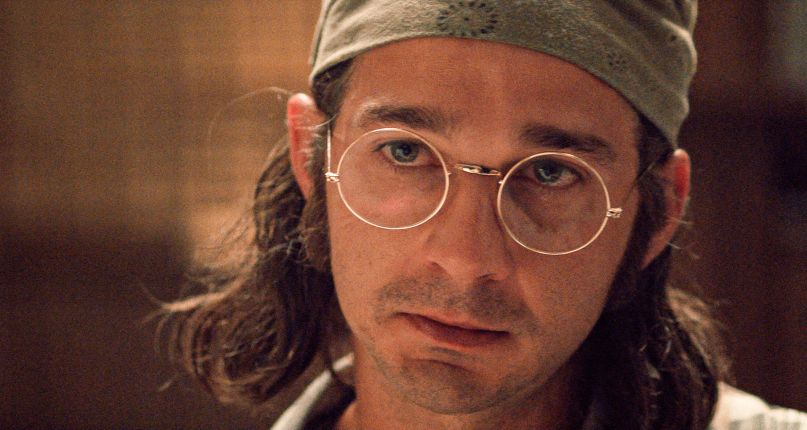
Conclusion
Honey Boy is storytelling in its rawest form: a performer baring his soul and opening old wounds for our enjoyment. It isn’t a traditional narrative with a plot and a clear arc for our hero, but it reflects a very real journey for a young man struggling to reconcile a complicated and emotional time in his life. It spares no detail and takes no sides, allowing the events to play out as they happened and transforming us into flies on the wall of his existence. His performance is heartbreaking, not only for his full commitment to portraying this larger-than-life figure in his life but a genuine attempt to understand and empathize with him – to mend old wounds, to forgive and forget. I hope LaBeouf was able to find some semblance of peace with this film, because he deserves it after such a rough upbringing.
VERDICT: A-
All image rights belong to Amazon Studios.
-Austin Daniel